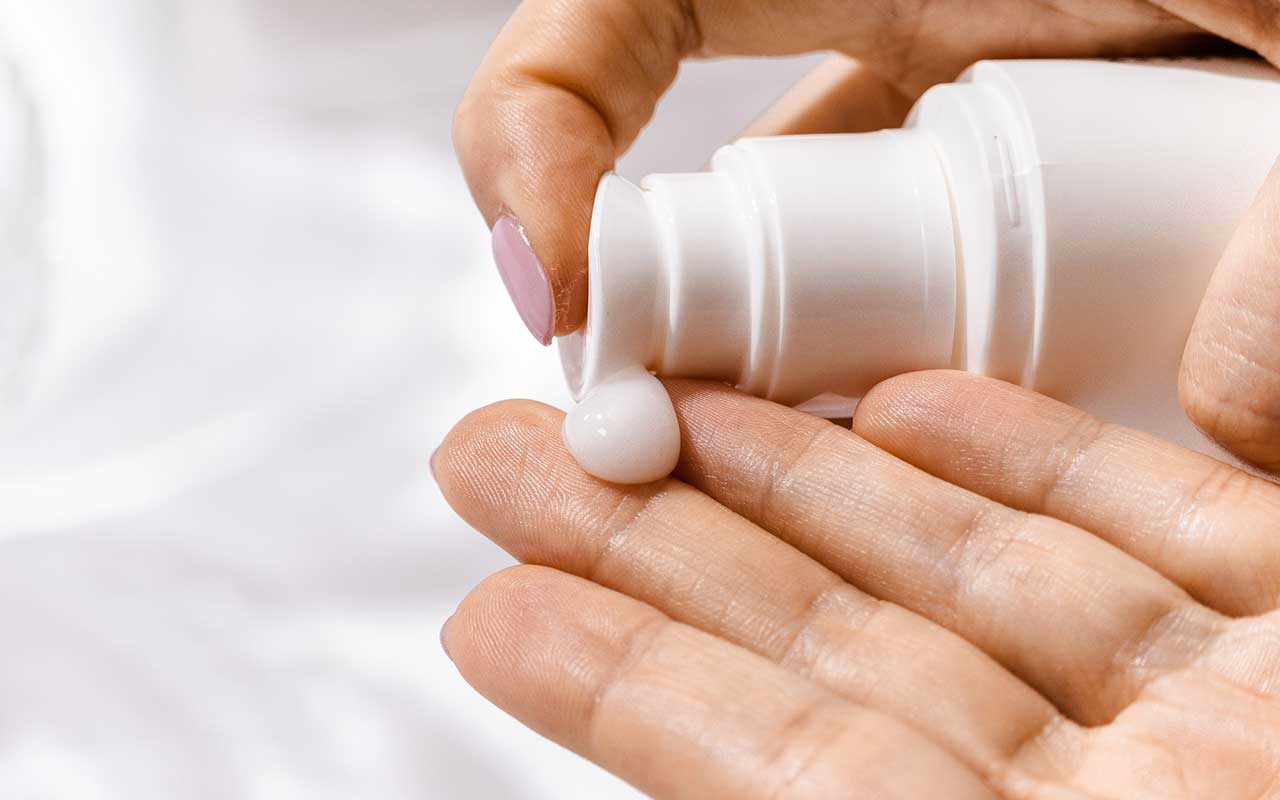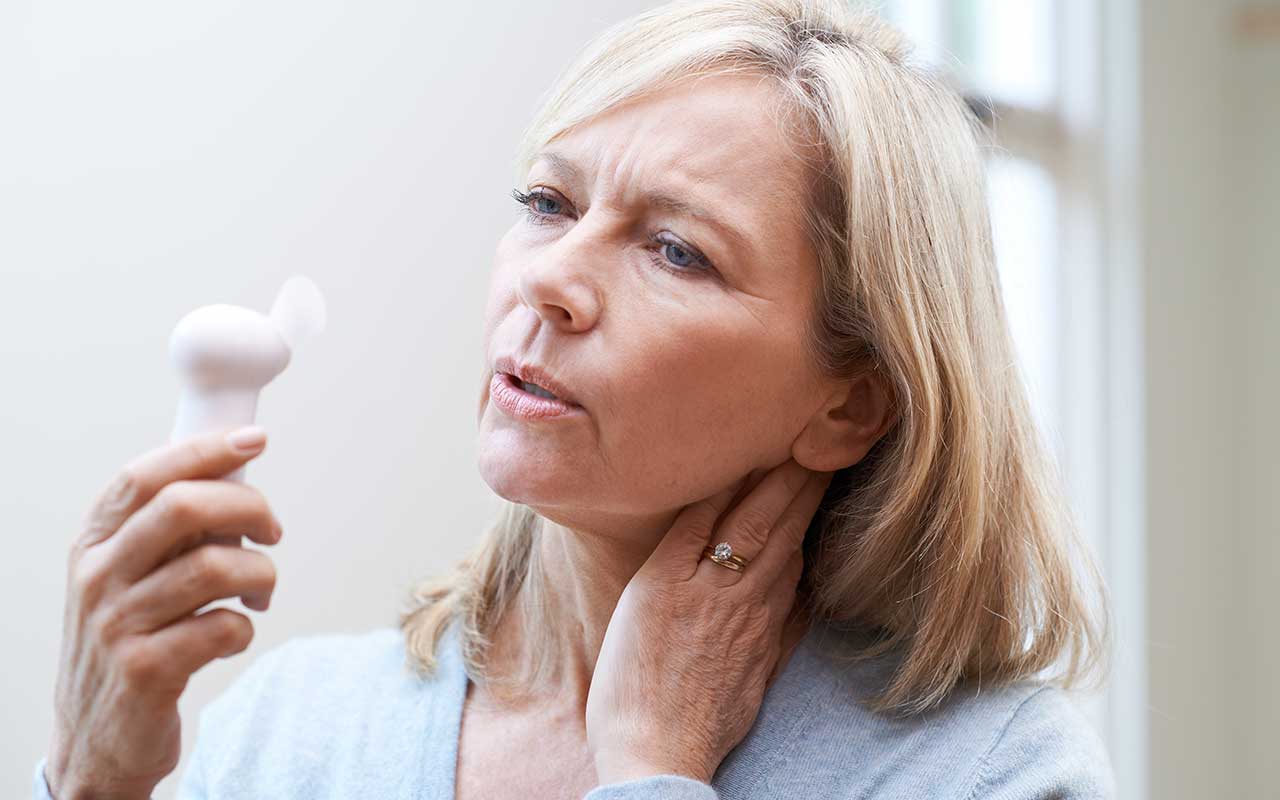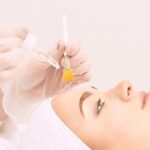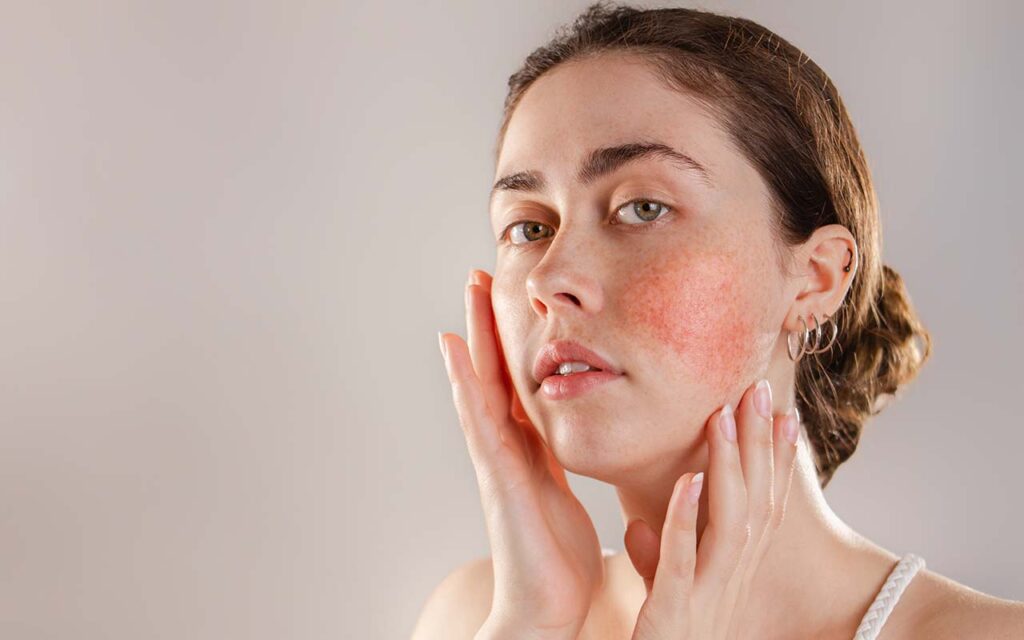The menopause is a hot topic now and something half the population will go through, often suffering with significant health and wellbeing consequences. Effecting every woman, it’s a topic that hasn’t been discussed in the mainstream very much but with high profile people discussing their menopause journey, it has generated a conversation and helping woman become more knowledgeable about what to expect and what can help – The Davina Effect!
With more than half (60%) of UK women confessing to not knowing what peri-menopause and menopause is, and with everyone suffering oestrogen-depleted complexions with dry skin causing sensitivity, acne and unpredictability during the change, there has never been a more prudent time to talk about the menopause.
What is the Menopause?
The menopause is a natural part of ageing that usually occurs between 45 and 55 years of age, causing oestrogen levels to decline, marking the end of a woman’s menstrual cycle. Vital hormones – oestrogen, progesterone and testosterone – start to fluctuate, leading to a number of physical and mental changes.
This nosedive in hormones causes havoc with the body as it struggles to rebalance and it affects absolutely everything – wellbeing, mood, sleep, digestion, sex drive, energy, memory and, of course, the skin.
What is the Perimenopause?
The perimenopause is known as the beginning of the change, which can start as early as 35 and last for as long as 10 years. Changes are starting to happen in the body and many clients won’t be aware it’s a perimenopausal state they are in.
During this phase, there can be a surge of reproductive hormones, which fluctuate wildly – “it’s the body’s way of saying, ‘this is your last chance to get pregnant, time is running out.”
With there being a staggering 65 different symptoms of perimenopause, listed in Dr Louise Newson’s Balance app. These will affect everyone differently, this is why we personalise treatments and protocols for each individual client.
How does menopause affect the skin?
The menopause brings with it many changes, the most common being hot flushes, vaginal dryness, decreased sex drive, memory fog and increased fat in the stomach area, to name a few. However, the skin is heavily impacted too, which is why you need to seek help from a trusted specialist to keep it calm and happy.
The skin gets drier and more sensitive because of the reducing oestrogen levels, and in the first five years of the menopause, you lose around 30% of their collagen. It’s one of the biggest issues, with skin looking thinner and showing more pronounced lines and wrinkles. This is the time look at more advanced treatments like radiofrequency and micro-needling, which are good for skin tightening and boosting the natural production of collagen.

Cell renewal also drops during this time and the sebaceous glands slow down the production of oil, leading to dull, rough skin, meaning that even the most robust complexions can become more vulnerable to irritation. Therefore, it’s not uncommon for you to experience sensitivity to products they’ve been using for years.
The skin barrier, which controls skin sensitivity, becomes more fragile during this time, so you need to increase hydration by choosing products that are a little richer. However, avoid pore-blocking oils and steer clear of abrasive treatments and deep scrubs because they can break down the skin barrier too.
We would always advice the use of vitamin A to normalise and regulate the healthy functioning of the skin cells, as well as hyaluronic acid to hydrate and plump.
Peptides will also help to stimulate healthy production of collagen and elastin, and vitamin C will strengthen capillaries. All our treatments use enhanced penetration techniques to ensure these active ingredients reach the deeper layers of the skin.
How can it be treated?
Skincare is always the first step, it’s your daily action that will have the biggest long-term influence on your skin. As I always say, it doesn’t have to be complicated, but it does have to be effective.
Highstreet skincare ranges are realising the raised awareness of the menopause in the media and jumping on this with marketing skincare specifically for Menopausal skin. This is something that gets under my skin. There isn’t a magic skincare ingredient that can replace the oestrogen in your skin. What we need to do is change the formulations of your skincare to focus on protection, hydrating and nourishing.
We would always advice the use of vitamin A to normalise and regulate the healthy functioning of the skin cells, as well as hyaluronic acid to hydrate and plump.
Peptides will also help to stimulate healthy production of collagen and elastin, and vitamin C will strengthen capillaries. All our treatments use enhanced penetration techniques to ensure these active ingredients reach the deeper layers of the skin.
Always, always always SPF. EVERY. SINGLE. DAY.
If you are struggling with any aspects of the menopause we encourage you to book an appointment with their GP to talk about the options available, including hormone replacement therapy (HRT), a synthetic drug that comes in two forms – oestrogen-only and a combination of oestrogen and progestogen; and bioidentical hormone replacement therapy (BHRT), a hormone preparation made from plant sources that are promoted as being similar to human hormones.
3 ways to reduce menopausal symptoms:
- Regular exercise – Yoga and tai chi are said to reduce stress levels. Walking and cardio will help with heart health and resistance training will support your bone density.
- Healthy diet – opting for a diet rich in vegetables, fruits and healthy fats, while cutting down on caffeine and spicy food, which the NHS says can trigger hot flushes.
- Self-talk –How we talk to ourselves during this time can have a huge influence on how we process the changes we are feeling. If you wouldn’t say it to a friend or relative, why are you saying it to your self? Being kind to ourselves, talking and thinking positively can have a big influence on our self worth.
If you would like to talk about your skincare or any treatments we offer to improve any skin concerns you have, book an in clinic consultation with our training skin therapists in our St Athan Clinic.




